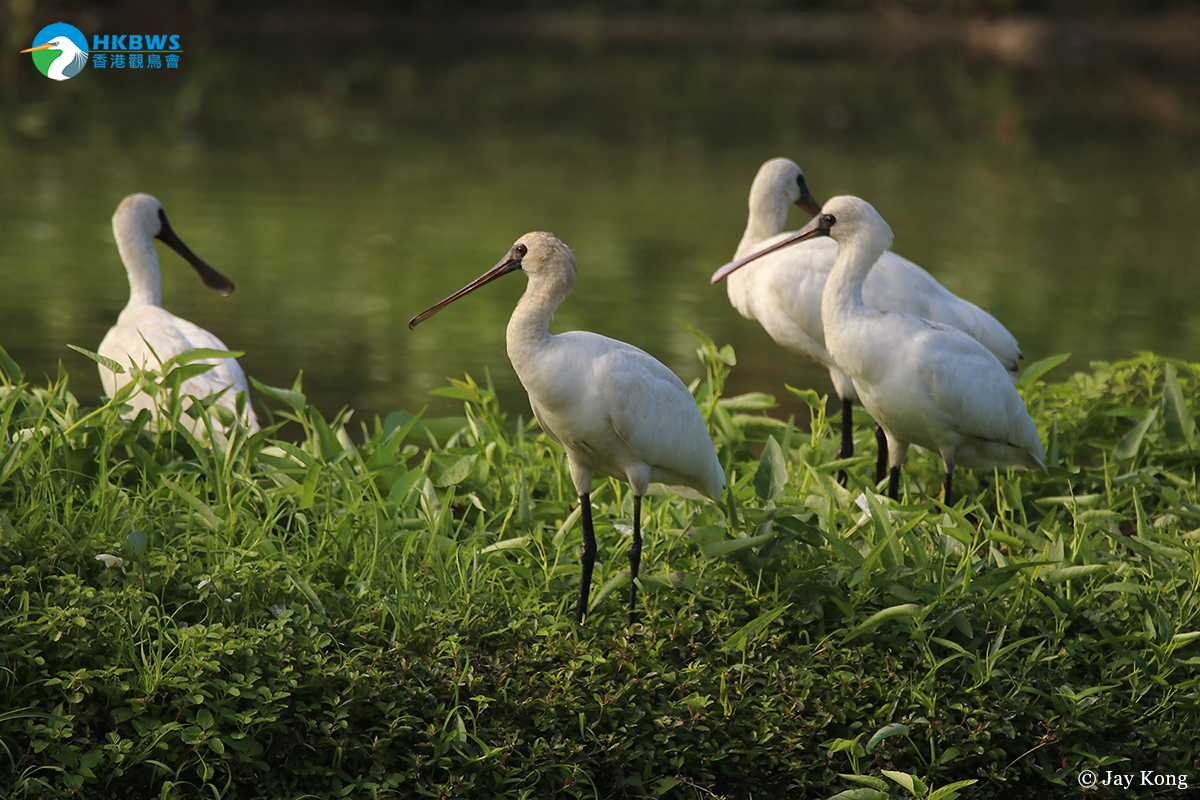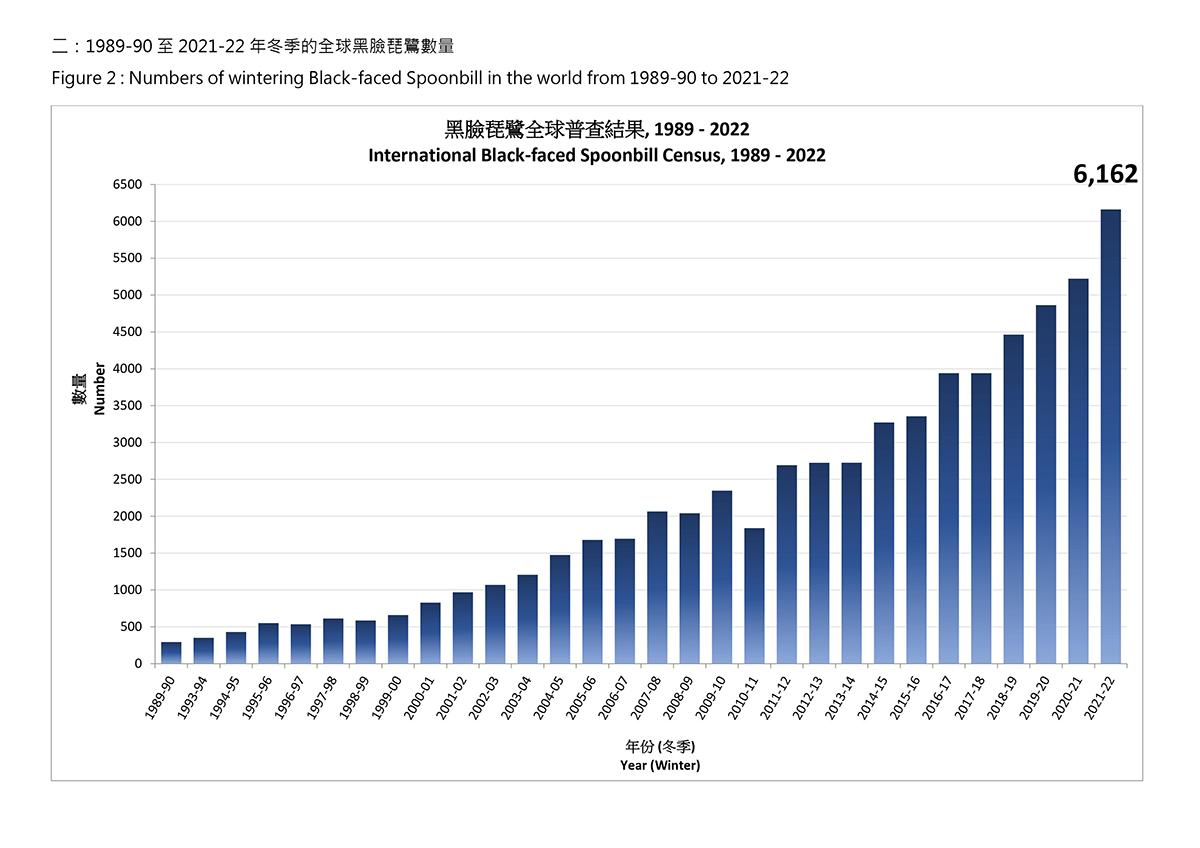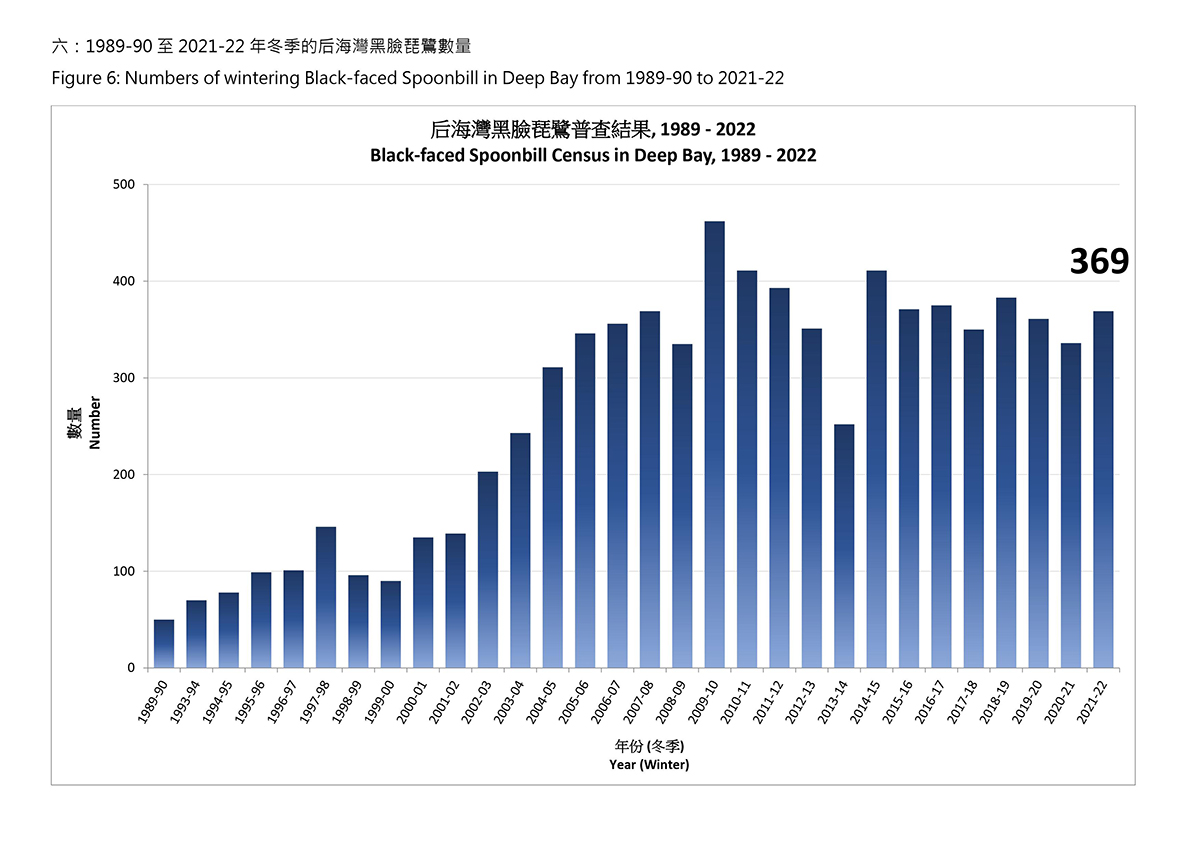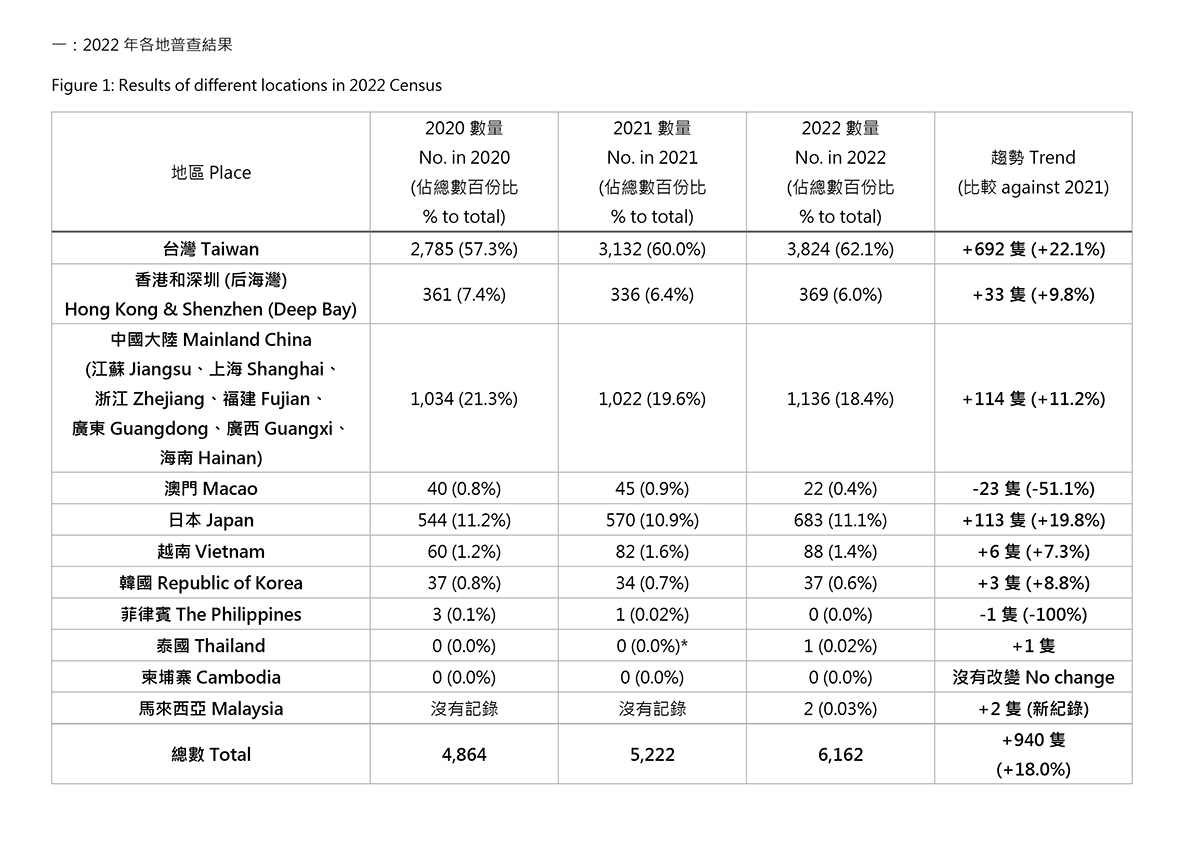Coordinated by The Hong Kong Bird Watching Society (HKBWS), The International Black-faced Spoonbill Census 2022 was conducted from 7th to 9th January. Global population of Black-faced Spoonbills (BFSs) reaches another record high of 6,162, a rise of 18% (i.e. 940 individuals) from last year. 369 individuals were recorded in Deep Bay, including Hong Kong and Shenzhen side. While the figure shows a rebound of 9.8%, it has become stabilized and does not differ fundamentally from those of previous years.

BFS global population breaks record for 9th time in decade
The 2022 census covered about 150 sites all over the world. All wintering sites, except for Macau and the Philippines, reported growing BFS populations. Taiwan remains the largest congregation site. Number of BFSs recorded there increases by 22.1% to reach 3,824, constituting 62% of the world population. Japan, too, is seeing a surge of 19.8% and recorded 683 individuals. With rebounding numbers in both Deep Bay and mainland China, promising signs from all major wintering sites help boost global BFS population to surpass 6,000 for the first time, making 2022 the 9th recording-breaking year over the past decade. Besides, we are delighted to have two individuals wintering in Malaysia, a new southern record since the census was first launched in 1994. New sightings suggest the BFSs may disperse over a large area in Southeast Asian region to roost.
Hong Kong population recovers, with declining share of global total
After two consecutive years in decline, Deep Bay BFS population gains 33 individuals this year and bounces back to 369. More BFSs were recorded in the Mai Po Nature Reserve and the Hong Kong Wetland Park, where habitat management measures are in place to provide suitable roosting sites for them. Mr. Yu Yat-tung, Director of HKBWS, noted that a mild growth was insufficient to determine whether habitats in Deep Bay have been restored. "Rising numbers in Hong Kong is largely attributed to surging global population, as more BFSs stopped over in Hong Kong and spent the winter here."
Less than two decades ago, Hong Kong was the winter home to one-fifth of BFS population worldwide. However, ever since Deep Bay population reached an all-time high of 462 individuals in 2010, its growth has stalled and the number has been hovering around 300 since 2016. Meanwhile, global figure continues to pick up steadily. Populations in Taiwan, mainland China and Japan keep hitting new record highs. At present, BFSs in Deep Bay constitutes only 6% of the global total.
Prospects of Deep Bay conservation hinges on the Northern Metropolis
Keeping wetland ecosystem in Deep Way intact is a prerequisite for attracting more BFSs during fall migration. The three Wetland Conservation Parks proposed under the Northern Metropolis Development Strategy can bring opportunities for conservation. Yu stressed that the Parks have to be spacious, eco-friendly with minimal human disturbance. "The Parks cannot be small. They must be large enough to provide abundant food supply for the BFSs."
Yu suggested that the "Inner Deep Bay and Shenzhen River catchment area", an Important Bird Area recognized by BirdLife International, be included in the Wetland Conservation Parks or designated as a restricted area under the Wild Animal Protection Ordinance. Long term conservation plans and habitat management measures are needed to preserve fishponds, mudflats and coastal wetlands in areas from Pak Nai to Ma Tso Lung. Feeding grounds for migratory birds including intertidal mudflats and fishponds should remain active both before and after government’s land resumption. Eco-friendly measures should remain in place, e.g. draining fishponds after harvest to let waterbirds feed on trash fish left on the muddy pond bottom. Finally, restricted areas should be delineated in the Wetland Conservation Parks to protect BFSs from human disturbance. For the sake of preserving Deep Bay's biodiversity, HKBWS again calls on government to make proper planning, set out a land resumption timetable for conservation and expand the nature reserve.






